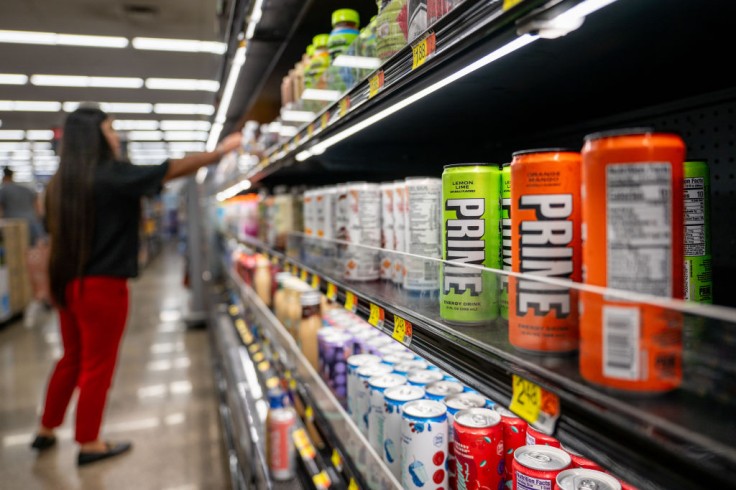
Senate Majority Leader Chuck Schumer is calling on the Food and Drug Administration (FDA) to launch an investigation into the popular energy drink, PRIME Energy, which is endorsed by YouTube stars Logan Paul and KSI.
Schumer expressed concerns over the beverage's high caffeine content and its apparent targeting of children through aggressive social media marketing campaigns.
With an alarming amount of caffeine packed into each can, medical experts are warning about the potential health risks associated with excessive consumption, especially among young individuals.
Logan Paul and KSI's PRIME Energy Drink Raises Concerns
According to CNN, the partnership between Logan Paul, known for his YouTube vlogs and controversial stunts, and KSI, a prominent internet personality and rapper, has led to the creation of PRIME Energy, a beverage that has gained significant popularity among their youthful fan base.
Logan Paul and KSI's initial beverage, PRIME Hydration, is a sports drink resembling Gatorade that boasts a unique blend of coconut water, electrolytes, and no added sugar or caffeine.
Setting itself apart from competitors, Hydration gained immense popularity with its vibrant flavors, including ice pop, lemonade, and the whimsical "Meta Moon" flavor, a delightful combination of blue raspberry, cotton candy, and bubblegum.
The drink's release created a frenzy, leading to rapid sellouts and scenes of eager fans lining up in grocery stores.
In response to the overwhelming demand, the UK-based Aldi grocery store chain had to impose purchase limits.
The beverage's fame also extended to the United States, where it has captured the attention of school-aged children, amassing a dedicated following.
After a year, PRIME Energy, an intensified and contentious variant, was introduced as an expansion to the product lineup.
However, the drink's composition has come under scrutiny, prompting Senator Schumer to demand an FDA investigation.
PRIME Energy contains a staggering 200 milligrams of caffeine per can, equivalent to more than two cups of coffee, approximately six cans of Coca-Cola, or 2.5 cans of Red Bull.
Pediatric nutrition experts and doctors, including Dr. Ran Goldman, have expressed worry about the potential impact on children's health, as even small amounts of caffeine can cause anxiety, jitters, decreased appetite, increased heart rate, and blood pressure.
The Dangers of Excessive Caffeine Consumption for Children
Health professionals have long cautioned against children consuming any amount of caffeine due to its potential risks.
According to NBC News, Chenin Nickel, an assistant professor in the Department of Nutrition at the University of Nevada, Reno, explains that even a slight overdose of caffeine can lead to severe consequences, including seizures, abnormal heart rhythms, coma, and even death.
The American Academy of Pediatrics firmly discourages the consumption of caffeinated energy drinks by children and adolescents, citing the lack of health benefits and the potential for excessive sugar and calorie intake.
Dr. Goldman has witnessed the negative effects of energy drink consumption in his young patients, including sleep disturbances, which can be especially hazardous for teenagers who are just starting to drive, as it impairs their reaction time.
Mixing energy drinks with ADHD medications may also accelerate heart rates, exacerbating health risks for children.
Social Media Influence and Regulatory Challenges
The marketing tactics employed by PRIME Energy are a cause for concern.
According to Global News, Senator Schumer highlights the drink's targeted advertising towards children on social media platforms, with the product being presented as a status symbol.
The accessibility of these beverages in grocery stores further exacerbates the issue, making them easily available to impressionable youngsters.
In the United States, many energy drinks, including PRIME Energy, fall under the category of dietary supplements, allowing manufacturers to produce and sell them without FDA notification.
This lack of regulation poses challenges in ensuring the safety and appropriateness of such products for the intended consumer market.
FDA regulations primarily focus on restricting ingredients that pose significant health risks or necessitate changes to product labeling.
While PRIME Energy does caution against consumption by individuals under the age of 18 and those sensitive to caffeine, the concern remains that children may still consume the drink without their parents' knowledge or understanding of the potential risks involved.